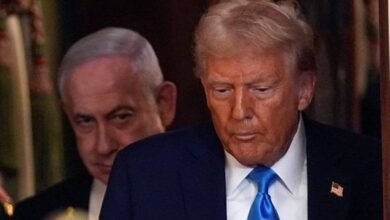The bigger picture: How the Karnataka outcome can impact upcoming assembly elections

NEW DELHI: The Karnataka elections, to be held on May 12 with counting on May 15, will serve as the stepping stone for the 2019 Lok Sabha elections. The outcome will especially galvanise the BJP and the Congress and could have a significant impact on assembly polls due in Rajasthan, Madhya Pradesh, Chhattisgarh and Mizoram later this year. What happens in Karnataka will also set the ball rolling for future alliances and strategies.
The two obvious outcomes are these — either of the main players – Congress or BJP – gets a clear majority and is able to form a government on its own. The third outcome is a hung assembly. In that happens, it is the JD(S) — the third major player in the state — which is likely to play the kingmaker. The party has entered into a pre-poll alliance with the BSP presumably to tap into the sizeable Dalit vote bank in the state. While it is unlikely that the JD(S)-BSP alliance will get the numbers on its own, it could play spoiler for both Congress and BJP by splitting the votes and ultimately be the deciding factor on who finally forms the government in Karnataka.
What happens if the BJP wins Karnataka
* The BJP is aware the Karnataka result is crucial. Following the recent bypoll defeats, the BJP is under pressure and needs to prove the Modi wave is intact. A win in the state will ensure the party has the edge over its rivals ahead of the other three big state elections later this year. It will also serve as a boost for the Modi-Shah duo, proving that their political gambles are paying off and party president Amit Shah’s high-risk “go-for-jugular” style is reaping dividends while putting a big question mark on Congress president Rahul Gandhi’s leadership.
* A BJP win in the state could also give impetus to the formation of a non-Congress Third Front ahead of the 2019 Lok Sabha elections. Earlier this month, Telangana Rashtra Samiti (TRS) and state chief minister K Chandrasekhar Rao announced his entry into national politics. Rao has received support from various political leaders, including West Bengal chief minister Mamata Banerjee and All India Majlis-e-Ittehadul Muslimeen (AIMIM) chief Asaduddin Owaisi. Rao has targeted both the BJP and the Congress, saying they have failed to provide an efficient government to the people of this country, setting the stage for the formation of a front that excludes both parties.
* At present, the Congress is going all out to woo allies with the idea that it will lead an alliance of parties that want to thwart a common enemy. However, the party’s defeat in Karnataka, essentially its last major bastion, would serve as a spoiler. Unless it retains Karnataka and wins in big states like Madhya Pradesh or Rajasthan, its chances of emerging as the unanimous anchor would be uncertain. Mamata Banerjee, in particular, could halt Rahul’s ambition to emerge as an alternative to Modi if the Congress loses this key state.
Uttar Pradesh is key to the BJP’s 2019 game plan. The state is the backbone of the party’s national dominance, having contributed 71 of its 282 Lok Sabha seats in 2014. In the wake of the saffron surge in the northeast, archrivals Samajwadi Party and the Bahujan Samaj Party decided to put aside their decades-old enmity ahead of the Lok Sabha bypolls in Gurdaspur and Phulpur After tasting success in the byelections, Mayawati’s recent decision to not continue the relationship with the SP for the upcoming bypolls in the state would no doubt have come as a surprise for Akhilesh. However if the BJP emerges victorious in Karnataka, Mayawati may see it in her best interests to maintain the alliance with Akhilesh for the Lok Sabha elections. The BJP won the UP assembly elections in 2017, but recent setbacks in the LS bypolls prove that the party is not invincible. SP and BSP have a history of animosity that won’t be easy to overcome, but this time both are fighting for survival and may go for a pre-poll alliance.
* The BJP’s allies could realise it is in their own interests to stick with the party. For example, the Shiv Sena has already announced it will contest the Maharashtra assembly elections and the 2019 Lok Sabha polls on its own. The Shiv Sena shares an uneasy alliance with the BJP in the state and has been vocal in opposing some of Prime Minister Narendra Modi’s policies. A win in Karnataka may force the Sena to rethink its strategy.
In Jammu & Kashmir too, the PDD-BJP alliance appears to be developing cracks. Inherent contradictions and divergent political interests have led to a deepening in the fissures. However, if the BJP wins in Karnataka, the PDP, despite disagreeing with the BJP on sensitive issues facing the state, may consider it prudent to put aside their differences in the runup to the 2019 Lok Sabha elections.
The LJP, meanwhile, has already said it will continue its alliance with the BJP for the general elections. “There is no vacancy of PM’s post in 2019 and opposition parties should stop daydreaming,” LJP leader Ram Vilas Paswan told TOI a few days ago.
Further, a favourable outcome in the state may encourage more regional parties to form an alliance with the BJP. Amit Shah’s shrewd tie-ups have already led to the party forming or joining governments in six out of eight northeastern states. Andhra Pradesh and Tamil Nadu could be next on his radar with possible alliances with the YSR Congress in Andhra and Rajinikanth’s party in TN.
* To ensure a win, the BJP is formulating strategies. The party will use the same election strategy it successfully deployed for assembly elections in Uttar Pradesh and Gujarat. The party has tasked its workers with collecting information — however minute — about the electorate. As many as 280 active leaders have been deployed in Karnataka to monitor the collection drive. Each leader monitors one assembly constituency, while members of polling booth committees are in charge of collecting the information. There is even a supervisory team of six leaders.
BJP national president Amit Shah has instructed these leaders to collect information on each voter and submit a detailed report by April 10. The information includes the number of houses in each polling centre, voters in each house, employed or unemployed, caste and religion, age, gender, number of temples and mosques, names of priests, contact numbers of all prominent personalities etc. Foundation work is taken very seriously by the party since it helps leaders connect with common people. The information will also help in selecting candidates.
If the Congress wins Karnataka
* The other scenario is a Congress win. A victory here will be a massive boost for Rahul Gandhi and the beleaguered party that was reduced to 44 seats in the 2014 Lok Sabha elections, a tally that has now gone up to 48. Reduced to ruling in only three states (including Karnataka) and one Union Territory, the Congress realises that a national-level grand alliance or ‘mahagathbandan’ is the only way the BJP juggernaut can be halted.
To get the ball rolling, 20 opposition parties recently came together at a dinner hosted by Congress leader Sonia Gandhi, billed as the first concrete attempt to forge an anti-BJP alliance for the 2019 Lok Sabha elections. NCP chief Sharad Pawar, leaders of Trinamool Congress, Samajwadi Party, Bahujan Samaj Party, DMK, RJD, JMM and the Left were among those that attended the dinner. A win in Karnataka would strengthen the Congress case that it should be the leader of this grand alliance.
* If the Congress wins, it will be a feather in the cap of present Karnataka chief minister Siddaramaiah, who will have overcome anti-incumbency and the political might of the Shah-Modi combine. Karnataka has never voted the ruling party back in power in the last three decades and all eyes are on the Congress chief minister to see if he can buck the trend. If he succeeds, the Congress may then be encouraged to name the chief ministerial candidate ahead of elections in Chhattisgarh, Madhya Pradesh and Rajasthan. In Punjab, for instance, the Congress declared Amarinder Singh the CM face and succeeded in wresting power from the BJP-SAD alliance in 2017.
* Ahead of the elections, the Congress has taken a gamble. The state cabinet’s decision to accord minority status to Lingayats could yield political dividends or it could backfire. The community constitutes 17% of the total population in Karnataka, and is the largest chunk. The Lingayat community, which can influence the outcome of 100 seats, traditionally favours the BJP. In North Karnataka in particular, the community has distanced itself from the BJP.
The party, however, feels the decision will work in its favour. “The issue was hanging fire for seven decades, and no government had dared take a call. Now that the Congress has taken a firm stance, I don’t see any reason for Lingayats not to support the Congress in the election,” said a senior Congress leader who was associated with the movement. The party is also hoping that its decision to lob the ball into the Centre’s court will leave the BJP in a bind. Now, the onus is on the Centre. If it doesn’t give minority status to the community, it will definitely antagonize it. If it does, then we will claim the credit,” said another leader.
* The Congress will make the Karnataka elections a “secularism versus communalism” contest. If successful, the party could use this as their strategy for upcoming polls. “It is going to be a secularism versus communalism contest (in Karnataka). The Congress is confident that under Rahul ji’s leadership, we will come back to power with a thumping majority in Karnataka,” Siddaramaiah said.
The grand old party got a slight boost two days ago when seven JD(S) rebel former MLAs joined the party. The rebel MLAs resigned from the Karnataka legislative assembly a day after they cross-voted in favour of the Congress candidates in the March 23 Rajya Sabha biennial election in the state.
Miffed with Congress, BJP-JD(S) alliance could be in the offing in Karnataka
JD (S) president HD Kumaraswamy is in the mean time walking a tightrope in keeping his options open of an alliance with either the Congress or BJP. Following a controversy during voting for the Rajya Sabha elections on March 23, a miffed Kumaraswamy dropped hints that his party could join hands with the BJP to oust the ruling Congress in the event of a hung assembly.
The former chief minister’s comments came after two Congress MLAs — including a senior minister — were allowed to vote for a second time after they committed technical errors in their first ballot papers during the Rajya Sabha elections in Bengaluru.
The outburst followed constant sniping from the Congress over the last few weeks in the run up to assembly elections. Earlier, Rahul Gandhi and senior Congress leaders had claimed the JD(S) was the ‘B’ team of the BJP and Siddaramaiah also ruffled JD(S) feathers by snubbing the party’s request to support the JD(S) candidate in the Rajya Sabha election.
Kumaraswamy reminded the Congress that he and his party cannot be considered non-entities in Karnataka politics. “I warn chief minister Siddaramaiah and the Congress that if I stand beside the BJP and cough, the Congress party will be vanquished in Karnataka politics,” the JD(S) leader remarked.
All eyes will therefore be on Karnataka and the political temperature in the state clearly is on a steep climb with Rahul Gandhi and Amit Shah kicking off campaigning in battleground constituencies.
rahul-in-karnatakaRahul’s roadshow in Karnataka (PTI Photo)
Shah though is unfazed. “We welcome a Modi vs the rest scenario as it used to be in the good old days when it would be Indira Gandhi vs the rest,” he remarked recently.







